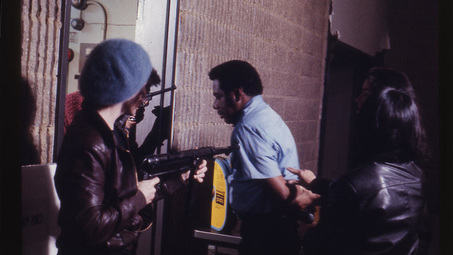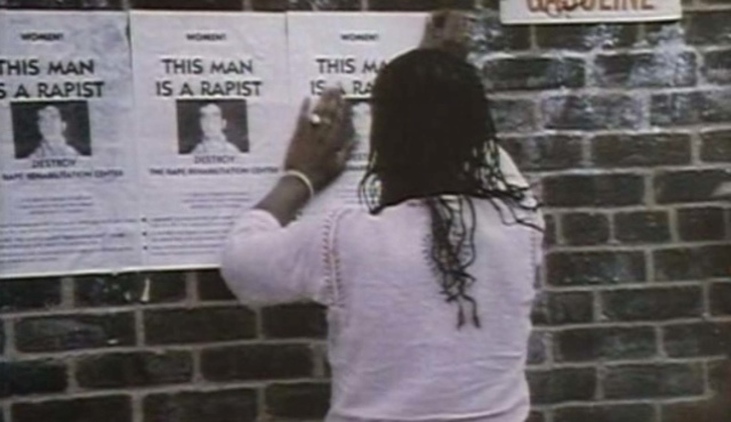 Made over thirty years ago, Lizzie Borden's Born In Flames is an angry and inventive piece of filmmaking that still retains its sense of urgency and immediacy today. Taking place ten years in the future, directly after the United States saw a peaceful revolution in which a socialist regime gained power, Born in Flames paints a portrait of a dystopia society where progressive groups such as minorities, LGBT organizations, and feminist groups, fight for their equal rights, still feeling left behind by their government, like second-class citizens to the majority. Struggling to find their fair slice of the pie, a group of woman decide to organize and mobilize their efforts, starting a new revolution in an attempt to rectify the continued violence against woman and unfair employment practices that still unfairly effect those of different gender and race. Born In Flames is energetic expose into activism, with much of the film consisting of realistic discussions between various factions of the radical feminist movement. There is the "Women's Army", who believe violence is the only way for women to gain their equal rights, there is two pirate radio stations who voice their disdain for injustice, and lastly there are three, white, intellectual type woman who work for the largest, socialist newspaper, whom believe these extreme feminist factions are in part, tearing the overall movement apart due to their extremist methods. Born In Flames uses staged news reports, surveillance footage, and documentary sequences to create a kaleidoscope of activism, being a film soaked in a ideologically complex discussion about progress in general and the fight for equality for minority groups. While there have been a few other films that focus on similar subject matters, Born in Flames captures the division and debate within activism like none i've ever seen before, reminding the viewer that no social movement is ever as clear and direct as it should be. The film exposes how various opinions about how to create change can in effect slow down progress, with some of these various factions conflicting with each other about simply how to achieve their equality. The film also has something to say about legalism, making a strong point that just because something is stated as law does not mean it has in-fact sparked change. While this revolution certainly was a move in the right direction of equal rights, Born in Flames argues that these type of changes don't happen over night, as the systematic stench of inequality lasts far beyond the official moment the law changes. While classified as a science-fiction film by some, Born in Flames is extremely prudent even to this day, with its examination of how media influences the masses being another important commentary on the state of America. In Born in Flames the mass media in effect stands up to the status quo of the system, routinely talking about how far America has come instead of trying to push it even further forward. Somewhere between essay film, political manifesto, and activism, Born in Flames is a film that doesn't deny that some progress has been made but it doesn't accept complacency either, being a creative examination of activism and progress.
0 Comments
Leave a Reply. |
AuthorLove of all things cinema brought me here. Archives
June 2023
|



 RSS Feed
RSS Feed
